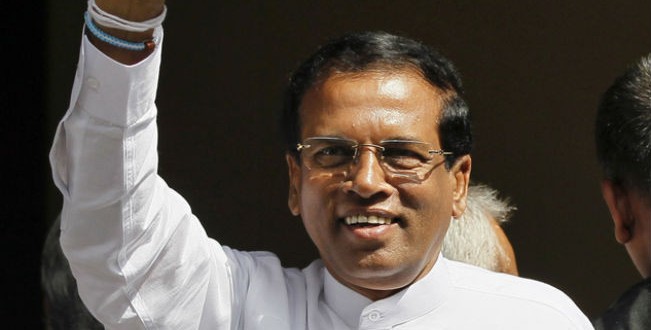The new government – is the situation in Sri Lanka better?
While there has been an opening up of the political space in the south, elsewhere surveillance, intimidation and a climate of fear remain. For many Tamils in the north and east of the island, very little has changed since January.
| Suggested Reading | Conflict Background | GCCT |
By the Sri Lanka Campaign for Peace and Justice
Until recently, the family of former president Mahinda Rajapaksa dominated the Sri Lankan government. Rajapaksa’s reign was characterized by the consolidation of executive power, militarisation, and a general crackdown on the rights of ethnic and religious minorities. In the prevailing culture of fear and impunity, serious violations of international humanitarian and human rights law went unpunished and continued long after the end of the brutal civil war in 2009.
On 8 January 2015, Rajapaksa lost the presidential election, in a surprise defeat, to Maithripala Sirisena, a former health minister who brought together a broad anti-incumbent coalition to stand against his erstwhile political ally. Six months later Sirisena dissolved parliament, and Rajapaksa’s party lost again in the general election held on 17 August.
Some progress
During his first six months in office, President Sirisena has made promising progress in some areas. For example, freedom of expression has improved and the media and civil society in the south of the country now have some room to operate independently. A constitutional amendment passed in April diluted some of the excessive executive powers of the president. And encouraging steps have been taken to investigate some high profile corruption and murder cases.
But not on human rights
Nevertheless, the human rights situation in Sri Lanka, particularly in the north of the country, remains worrying. The Government has done little to address the major structural problems that continue to threaten minority communities and undermine the rule of law. For many survivors, there has been little meaningful change on the ground. The Government has shown itself to be far less willing (and able) to conduct reforms when it comes to areas where the military has a significant influence, such as demilitarisation, accountability, and matters defined as important to national security. This suggests that while sections of the Government may be open to reform, elements of policy still remain in the hands of the security apparatus, whose attitude – and top personnel – have not changed since the previous regime.
Business as usual in the north and east?
While there has been an opening up of the political space in the south, elsewhere surveillance, intimidation and a climate of fear remain. For many Tamils in the north and east of the island, very little has changed since January. The daily experiences of ethnic minorities, in terms of interactions with the military, for example, still differ greatly from those of the Sinhalese majority.
No significant steps have been taken to repeal the draconian anti-terror laws or to end the human rights abuses experienced by detainees. Recent reports (for example, by Freedom from Torture and the International Truth and Justice Project) provide fresh evidence that such abuses – including torture, rape and abductions – are still taking place. Until this changes, there can be little hope of genuine reconciliation or lasting peace.
The Sri Lanka Campaign for Peace and Justice is a multi-ethnic, non-partisan group who campaign for a just and lasting peace in Sri Lanka, based upon accountability and respect for human rights.
The Sri Lanka Campaign for Peace and Justice is a member of the Global Coalition for Conflict Transformation, which is comprised of organizations committed to upholding and implementing the Principles of Conflict Transformation.




















RT @gcct_tc: The new government – is the situation in Sri #Lanka better?: While there has been an opening up… http://t.co/s9ouObCZp1
The new government – is the situation in Sri Lanka better? – @SriLanka @SriLankaTweet – http://t.co/T2SIMD9D2l
RT @gcct_tc: The new government – is the situation in Sri #Lanka better?: While there has been an opening up… http://t.co/s9ouObCZp1
The new government – is the situation in Sri Lanka better? – @SLcampaign #SriLanka – http://t.co/cWaB7q30DP
The new government – is the situation in Sri Lanka better? – @SLcampaign #SriLanka – http://t.co/T2SIMD9D2l
RT @gcct_tc: The new government – is the situation in Sri Lanka better? – @SLcampaign #SriLanka – http://t.co/cWaB7q30DP
RT @TransConflict: The new government – is the situation in Sri Lanka better? – @SLcampaign #SriLanka – http://t.co/T2SIMD9D2l